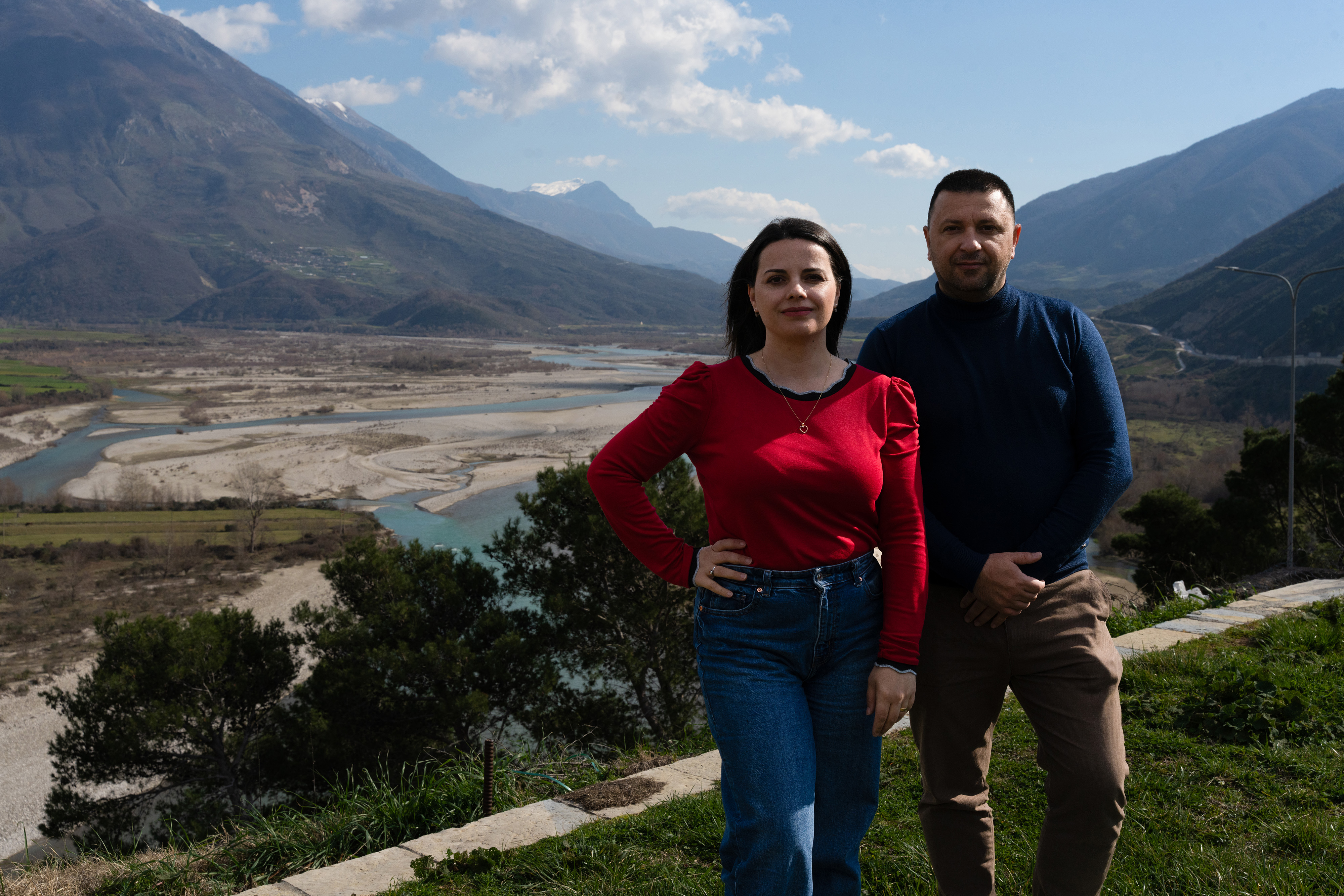 Save the Blue Heart of Europe - A campaign for the protection of Balkan Rivers
Save the Blue Heart of Europe - A campaign for the protection of Balkan Rivers
2025 Goldman Environmental Prize for EcoAlbania's Besjana Guri and Olsi Nika

2025 Goldman Prize winners Besjana Guri and Olsi Nika (Photo: Goldman Environmental Prize)
River defenders from Albania win the 2025 Goldman Environmental Prize. For the third time in the past six years, activists in Europe have received this prestigious award for campaigning against hydropower in the Balkans.
On 21 April 2025, the Goldman Environmental Foundation announced seven recipients of the 2025 Goldman Environmental Prize, the world’s foremost award for grassroots environmental activists. Awarded annually to environmental heroes from each of the world’s six inhabited continental regions, the Goldman Environmental Prize honours the achievements and leadership of grassroots environmental activists from around the world, inspiring all of us to take action to protect our planet.
For Europe, river activists from EcoAlbania, Besjana Guri and Olsi Nika, took home the prize! Besjana Guri and Olsi Nika’s campaign to protect the Vjosa River from a hydropower dam development boom resulted in its historic designation as the Vjosa Wild River National Park by the Albanian government in March 2023. This precedent-setting action safeguards not only the entirety of the Vjosa’s 167 miles, which flow freely across Albania, but also its free-flowing tributaries, totalling 250 miles of undisturbed river corridors. The Vjosa ecosystem is a significant bastion of freshwater biodiversity that provides critical habitat for several endangered species. The new national park is both Albania and Europe’s first to protect a wild river.

This is the third time in the last six years that this award has gone to activists fighting against the construction of hydropower in the Balkans. In 2019, Ana Colovic Lesoska from North Macedonia was honoured for campaigning against dam projects in her country. In 2021, Maida Bilal was honoured on behalf of the Brave Women of Kruščica for occupying a bridge over their river for over 500 days and nights – despite violent eviction attempts by the police and even during the long, cold winter - and thereby preventing the construction of two hydropower plants.